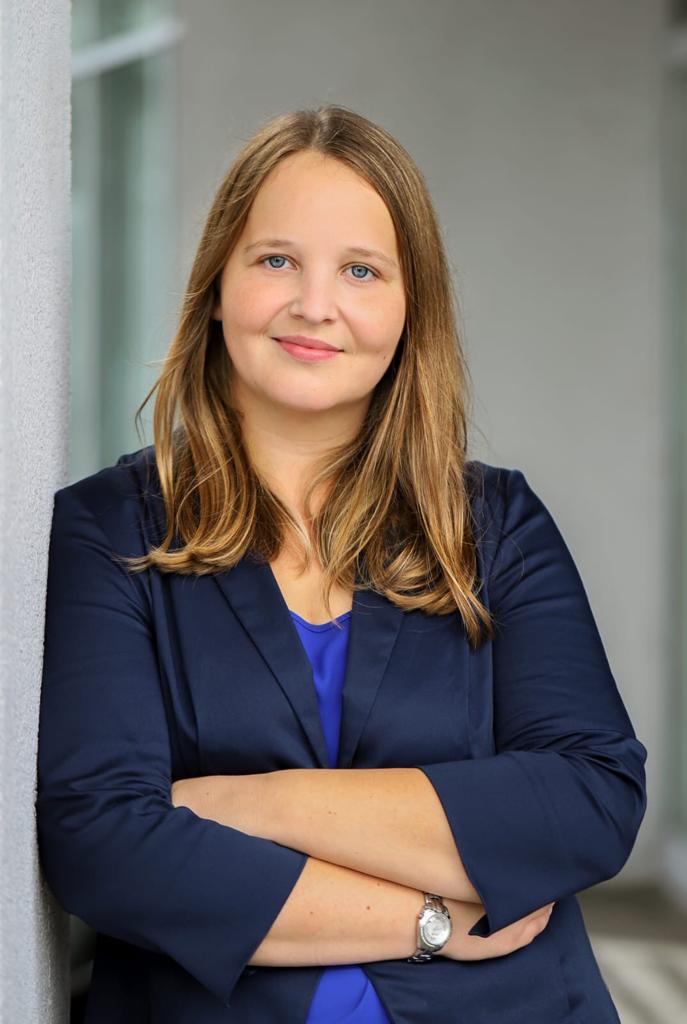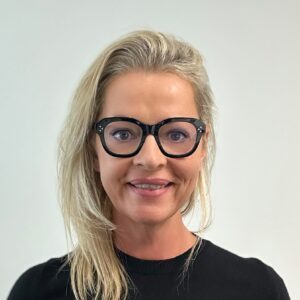
Not all of our colleagues have followed a straightforward IT training path. Many have made interesting career changes. Project manager Martina Hasenleitner has an especially fascinating career path.
Martina Hasenleitner originally pursued a vocation in tourism management in Bad Ischl. To finance her studies, she worked as a waitress. At the tourism school, she chose biology as an elective and even went on to graduate in this subject. A pivotal health event strengthened her resolve to view the entire human being as a “miracle”. This led her to study molecular biology; she is currently pursuing her doctorate while working at Porsche Informatik.
Martina, how did you, a molecular biologist, end up at Porsche Informatik?
Pretty much by accident. I needed a job to finance my studies. So I trained as a project manager on the side. I liked project management right from the start, even more than research. When I finished my training, I applied for a job as a junior project manager for an international project at Porsche Informatik. After that, things proceeded very quickly. Within a month, everything was signed and sealed, and I started working here. That was in June 2019.
How did your career develop at Porsche Informatik?
My first project was introducing the Digital Workplace (DWP) in the partner countries. On this project, I supported Klaus Griesebner as Office PM. I enjoyed it so much that I subsequently wanted to take over the introduction of the DWP in the private Austrian retail sector. Currently I am managing two projects: the integration of the IT infrastructure at the Porsche Informatik subsidiary DASOF in Slovenia and the “M365 Migration in Japan” project.
Managing such large projects is remarkable, especially for someone with an entirely different professional background. What was your biggest challenge in introducing the Digital Workplace?
The car dealerships are very diverse, and each is managed differently. That made the project very labour-intensive. The biggest challenge, however, was overcoming the scepticism towards the new – the digital environment. The employees in car sales and service have a different focus: IT should just work; you shouldn’t have to think about it. But by holding many advisory sessions and information events and with the support of everyone involved on the project, we managed it all.
_____________
“My motto? It’s okay to fall, but not to stay down. Always picking myself back up and working on myself is what keeps me fresh and alive!”
_____________
There still aren’t many women in the IT sector. Why do you think that is?
There are already more women in software development, but we are indeed still very underrepresented in the infrastructure sector. This could be because infrastructure is not so tangible; it is not that easy to visualise as something concrete. To attract women into infrastructure, we would need to communicate more intensively about how diverse the topic is. Infrastructure, which covers networking, email, security and cloud, is a broad, very exciting field that includes project management, quality management and more. This aspect should be presented better. Open days and covering the topics more in social media could help.
Is your goal to perhaps combine IT and molecular biology in future?
I won’t go back into research. The doctorate is one of my personal goals, and then the subject will be closed. For the time being, I’ll stick with IT. The connection between the different topics, the complexity, the interconnectedness of the many processes and between the people – that’s what I find so exciting and interesting. After I complete my doctorate, I would like to continue my education in project management. I am now simultaneously working on certifications in Prince2 and Scrum Master. I want to acquire a broad portfolio of project management methods and coach others.



